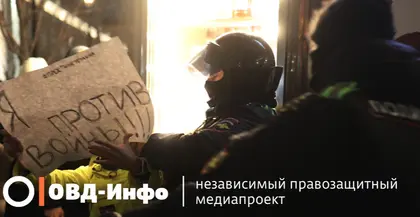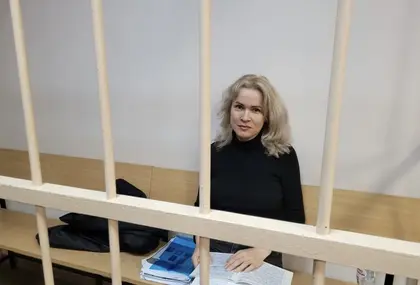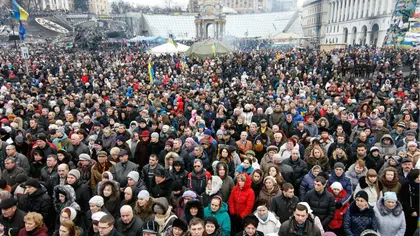On Tuesday, Feb. 7, Russian prosecutors requested that Maria Ponomarenko receive nine years of prison and a five-year suspension from her profession. Her crime? She wrote about Russia’s bombing, last March, of the theater in Mariupol, Ukraine, which killed hundreds of civilians, including many children.
Despite clear markings outside of the theater that said “children” in Russian, Russian forces bombed the theater, destroying it. The death toll may never be known, but Russian authorities were quick to cover it up as they promoted red herring stories to distract the public from the horrendous crime.
- Find the most current war in ukraine update in the Kyiv Post’s daily news reports published today.
- Get the newest Ukraine news reports as of today.
JOIN US ON TELEGRAM
Follow our coverage of the war on the @Kyivpost_official.
Ponomarenko was charged under a Russian law that appeared on the books shortly after the Feb. 24, 2022, when the full-scale invasion of Ukraine began. The law forbids the ‘dissemination of false information about the Russian Armed Forces.” All signs seem to indicate that prosecutors do not intend to be lenient with Ponomarenko.
How did she “disseminate false information about the Russian Armed Forces”? In a Telegram channel, she described the reality of how Russia had slaughtered Ukrainian men, women, and children who had sought refuge in the theater’s deep basements, which they were using as a bomb shelter.
Since being arrested, her appeals to be sent to home arrest have been denied. She has also been treated to what many perceive as punitive treatment: kept in a solitary cell, her windows covered by prison officials.

Russian Anti-War Dissidents: OVD-Info's Struggle for Human Rights Amidst Repression
“I consider being placed in a cell with windows covered by paper as torture. I do not pose any danger to society. The only person I can damage because of depression is myself,” Radio Liberty records Ponomarenko saying at one of her court hearings, where she was beamed in by video call.
The pressure of prison has not treated Ponomarenko well. Based upon her own account, she has tried taking her life by cutting her wrists, and was subsequently dispatched to a psychiatric hospital for “evaluation” where she was injected, against her will, with substances when she requested sanitary items and her personal belongings. According to Ponomarenko, the rounds of injections have caused memory loss and other symptoms.
Russian officials deny Ponomarenko’s claims.
It is well documented that Soviet officials would send unwanted members of society off to psychological hospitals for long periods and to keep them in a medicated stupor.
The Committee to Protect Journalists (CPJ) among others has called for her release. However, Russian prosecutors seem intent on their objective. Russian courts, known for their lack of objectivity, are known to rubber-stamp or slightly amend the recommendations set forth by the Prosecutor’s Office.
Thus, more likely than not, Maria Ponomarenko’s daughters will grow up without their mother; as their mother told the truth about Putin’s war against Ukraine – and now she will pay.
You can also highlight the text and press Ctrl + Enter






